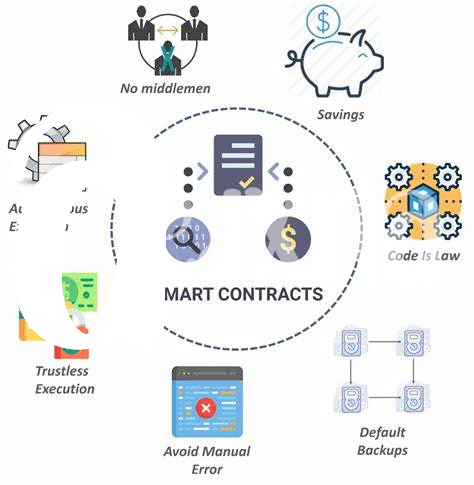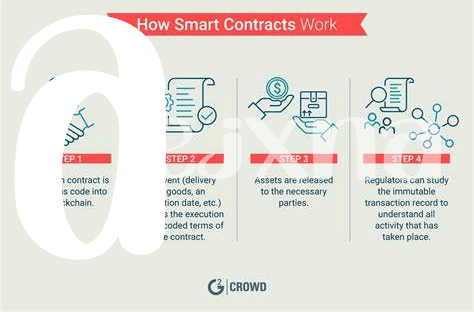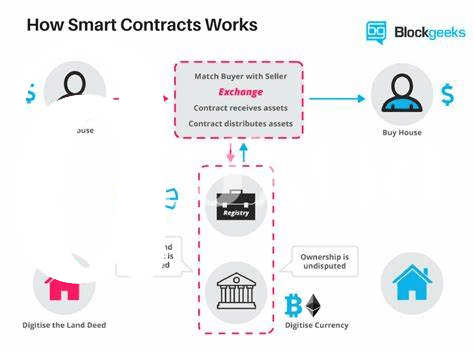🌐 Understanding the Basics: Bitcoin Script Vs. Ethereum Solidity

Imagine a world where agreements and deals can happen seamlessly between people without needing a middleman. This world isn’t just in our imaginations anymore, thanks to something called smart contracts. Think of smart contracts like automated promises that make sure everyone does what they said they would. Now, in this fascinating world, two major players stand out: Bitcoin Script and Ethereum Solidity. Bitcoin Script is like the old, wise sage. It’s been around, keeping things running with a straightforward if-this-then-that principle, making sure transactions stick to the rules. Ethereum Solidity, on the other hand, is like the young wizard, full of potential, allowing for more complex agreements with its programming powers. Both have their unique magic, but they serve the same great purpose: making trusty, automated agreements a reality.
Diving a bit deeper, think of Bitcoin Script as a lock and key system; it’s all about locking up transactions until certain conditions are met. Ethereum’s Solidity, however, is like building a robot to do tasks under specific conditions. This difference in approach can have a big impact on what kinds of projects or solutions might fit best with either Bitcoin or Ethereum. Here’s a quick look at how these two compare in practice:
| Feature | Bitcoin Script | Ethereum Solidity |
|---|---|---|
| Complexity | Simple | Complex |
| Purpose | Transactional Scripts | Full-fledged Contracts |
| Flexibility | Low | High |
Whether you’re looking to lock in a simple transaction or create a complex, autonomous program, understanding the basics of Bitcoin Script and Ethereum Solidity is key to unlocking the potential of smart contracts.
🔧 Tools of the Trade: Writing Your First Smart Contract
Diving into the world of smart contracts might feel like stepping into a new universe, but fear not! It’s really about learning a new language, much like picking up Spanish or Japanese, except in this case, it’s programming languages for Bitcoin and Ethereum. Starting with Bitcoin, imagine it’s like playing with LEGO blocks; Bitcoin Script allows you to stack simple operations to secure your transactions. It’s pretty straightforward but limited in complexity. On the flip side, Ethereum’s Solidity is more like molding with clay; it’s flexible, and you can shape it into anything, from simple agreements to complex decentralized applications. If Bitcoin Script is your basic arithmetic, then Solidity is the whole algebra class.
https://wikicrypto.news/exploring-lightning-network-bitcoins-path-to-faster-transactions Writing your first smart contract can feel like magic. You’re essentially creating rules that run on the blockchain, rules that can move digital money, make decisions, and even run businesses without the need for middlemen. Taking your first steps might start with something simple, like a digital handshake that seals a deal when certain conditions are met. The real excitement comes when you see your creation come to life, executing automatically as planned. Whether it’s a simple transaction script in Bitcoin or a more complex decentralized app in Ethereum, the satisfaction of making something that works on this cutting-edge technology is unmatched. Imagine setting the foundation of a house that’s not just built on land but on the digital frontier of the internet.
🧩 Puzzle Pieces: How Scripts and Contracts Fit Together

Imagine you have a bunch of Lego blocks. Each block represents a piece of code or, in our world, a mini-contract or script. Now, Bitcoin Script is like playing with a basic set of Lego – you can build some pretty cool stuff, but your creations are somewhat limited in complexity. Ethereum’s Solidity, on the other hand, is like having the ultimate Lego set with all the bells and whistles. It lets you construct much more detailed and functional creations, or in this case, smart contracts that can do a wider variety of tasks.
Both Bitcoin Script and Ethereum Solidity allow these pieces to click together, creating a secure, operational structure that powers various applications on the blockchain. Think of building a simple toy car with your basic Lego (Bitcoin Script) versus a remote-controlled, multi-functional car with the ultimate set (Solidity). Both have their places and fulfill different needs. Bitcoin’s approach is about simplicity and security, focusing primarily on financial transactions. Ethereum dives into complexity and broader utility, supporting an entire ecosystem of decentralized applications with its more versatile toolset. Combining these blocks smartly can unlock endless possibilities, paving the way for innovative applications in the crypto world.
💻 Behind the Scenes: the Execution Environment Differences

Diving into the digital world of smart contracts, it’s fascinating to explore how Bitcoin Script and Ethereum Solidity provide distinct playgrounds for developers. Imagine Bitcoin Script as a simpler, more straightforward environment, much like a toy set with specific pieces that fit together in limited ways. This rigidity makes it incredibly secure but somewhat restrictive. On the other hand, Ethereum’s Solidity environment is like a vast sandbox. Here, developers wield the power to craft intricate and complex structures, offering a broad canvas for creativity. However, this flexibility comes with its challenges, particularly when ensuring everything runs smoothly and securely. The stark differences in execution environments highlight the importance of choosing the right tools for your project’s goals. For those navigating these waters, insights on analyzing bitcoin price volatility and its causes versus ethereum can be incredibly enlightening, helping you secure your creations in these dynamic landscapes. Both environments have their allure, but understanding their nuances is key to unlocking their full potential.
🔒 Locking It Down: Security in Smart Contracts
Imagine you’ve built a digital fort to keep your treasure safe. Smart contracts are like that, but instead of gold, they protect deals and agreements on the blockchain. 🧐 Just like in the real world where locks and security cameras keep things safe, in the digital world, we use clever coding practices and constant vigilance to fend off tricky cyber-thieves. Think of Bitcoin Script and Ethereum Solidity as the materials you choose for your digital fortress; each has its unique strengths and quirks. 🛡️ Ethereum’s Solidity allows for complex and detailed contracts that can do a lot but also need more layers of protection. Bitcoin Script keeps things simpler, which, in its own way, can be a strong defense because there’s less room for errors that bad actors could exploit. No matter which you choose, keeping your contract safe is all about staying ahead of sneaky hackers with regular check-ups and updates. Because in the end, a smart contract is only as good as its defenses.
| Platform | Security Approach |
|---|---|
| Bitcoin Script | Simpler, less error-prone |
| Ethereum Solidity | Complex, requires active management |
💡 Bright Future: What’s Next for Smart Contracts?

Just like the dawn heralds the promise of a new day, the world of smart contracts is standing on the cusp of transformative innovations. Artists, entrepreneurs, and even governments are beginning to see the boundless possibilities that these digital agreements offer. Imagine, in the near future, a world where smart contracts automate complex legal negotiations, ensure seamless international trade, and empower creators to protect and monetize their work like never before. With the continuous advancement in technology, these contracts are becoming more accessible, faster, and even smarter. They’re not just contracts anymore; they’re becoming the building blocks for a new digital society.
Amidst this bright horizon, there’s a pivotal role played by security and scalability—the twin pillars that will define the future trajectory of smart contracts. Just as a building needs a strong foundation to withstand storms, smart contracts require robust security measures and the capability to support an ever-growing number of transactions. There’s a wealth of knowledge waiting to be explored on how to ensure the resilience and efficiency of these digital agreements. For those curious about navigating these critical aspects, delving into best practices for securing your bitcoin against theft versus ethereum will offer invaluable insights. As we look towards the future, it’s clear that smart contracts hold the potential to redefine our digital and real-world interactions, making them more transparent, efficient, and secure. The journey is just beginning, and the possibilities are truly limitless.
